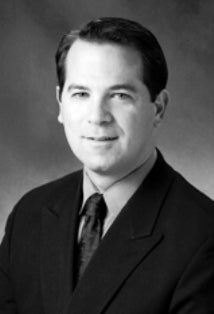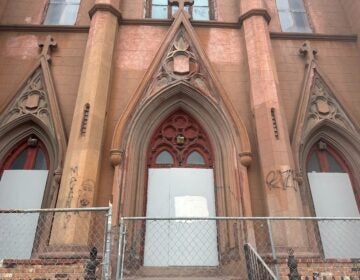Richard DeMarco

RICHARD DeMARCO
Age: 40
Education: St. Joseph Prep; Bachelors in International Affairs from Lafayette; Juris Doctor from Villanova.
Professional: Zoning and land use attorney with Klehr, Harrison, Harvey, Branzburg & Ellers. Also works in real estate litigation. Former legislative aide to City Council President Anna Verna, whose interests he represented before the zoning board.
Volunteer/Community work: Democratic Committeeman in his neighborhood since 1999. Ward attorney for ward 39B.
Personal: Married to Noreen. Son Gabriel, 11 months.
Philadelphia resident since he was less than a year old – he was born in Stratford, N.J.
Neighborhood: South Philadelphia.
Appointer: City Council President Anna Verna.
Q&A
Why is zoning reform important to you? It’s a very important part of my practice. I have seen numerous problems in the system for all parties involved, meaning property owners, community groups – you name it. There are significant problems for anyone who has experience with the system. My (professional) experience has been more on the property rights site – there are big time issues with that. But there are also big time problems for protestants and special interests. The city has to begin to recognize that property owners are citizens of the city and (the city’s) customers.
Why are you a good choice for this commission? Although I practice as an attorney who mostly represents property owners, my experience in the community – both as a committee person and as someone who worked on behalf of the community as a legislative aide in city council – means that I have seen all sides of the issues. I can be very fair when it comes to two sometimes competing interests – property rights vs. community input.
What is the most pressing zoning issue Philadelphia faces? My pet issue is there is a lack of understanding by L&I regarding the rights of property owners with regard to grandfathered properties (properties that do not meet current zoning requirements, but met those in existence when they were built or modified). The city continually sends property owners with grandfathered properties to the zoning board to legalize properties. That should never happen.
What should be done to address this issue? The code can be changed to correctly incorporate the case law regarding non-conforming properties and to give more instruction to the zoning examiners as to what the law is. This will eliminate many of the inconsequential cases that get sent to the zoning board and leave the board more time to focus on more important changes, for instance, a use change or variance.
I think there should be a presumption of legality at a certain age of the property … where you get an automatic presumption that the property was legal when it was constructed.
WHYY is your source for fact-based, in-depth journalism and information. As a nonprofit organization, we rely on financial support from readers like you. Please give today.






